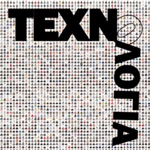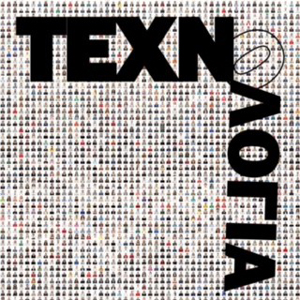Insight: reimagining timeless symbols in Saint Abdullah & Eomac’s new collaboration, Olya Karlovich, δημοσίευση CLOT Magazine [30/11/2022]

In the Saint Abdullah project, New York-based Iranian-Canadian brothers Moh and Mehdi create sounds influenced by the Middle East’s social, political, and cultural aspects, challenging the Western world’s stereotypical misconceptions about Muslims. Their fearless music is a blend of field recordings from Tehran and samples of Shiite ceremonies with hip-hop beats, free jazz accompaniments, dub, ambient, and noise.
The work of Irish producer Ian McDonnell AKA Eomac, also spans across genres — from classic rave and eerie techno to experimental electronics. The artist is a master of glitchy percussion and raw sound design and experiments a lot with samples. His music appeals to the ideas of humanity and deep connections between people rather than political context, which, however, does not make it less sincere or exciting.
When Moh and Mehdi first heard Eomac at a friend’s house, it literally blew their minds. That was the Bedouin Trax album, Ian’s exploration of Islamic and Arabic strings and percussion instruments. We couldn’t even imagine that some Irish dude was behind that record. We thought it was a kid from Baghdad who did it. Sometime later, Saint Abdullah contacted Eomac, asking if he would like to do a collaboration. It turned out that Ian is also a fan of the brothers’ work, so the answer was yes.
In September, Saint Abdullah and Eomac released a Patience Of A Traitor album on Nicolas Jaar’s Other People. “The record speaks to preserving timeless things by revisiting the past.” Its concept is based on symbolic images inspired by personal artists’ experiences. For Saint Abdullah, the Persian bathhouse — the role it played in building community and the bathing rituals — became such an ultimate symbol, a connecting link in the musical narrative. A lot of our conceptual conversations are about making a sound that is about the present. It is not about some crazy futuristic ideas […]. And we were thinking about things that are our past but ought to be carried forward. And the bathhouse came across our conversation as a wonderful symbol of that. We are interested in slowness in time whenever you think it is scattered, super fast, and just too much.
Speaking of temporality, the duo adds: We’re lucky in the digital world that we can revisit things by virtual film, sound, and by word. And those revisiting pose questions. And then another thing is that you have to have a perspective on where the world is headed or the things you see every moment of your existence. But those two elements juxtaposed each other to come up with what we should keep, what we should hold on to, and what we should let go.
Η συνέχεια εδώ.





